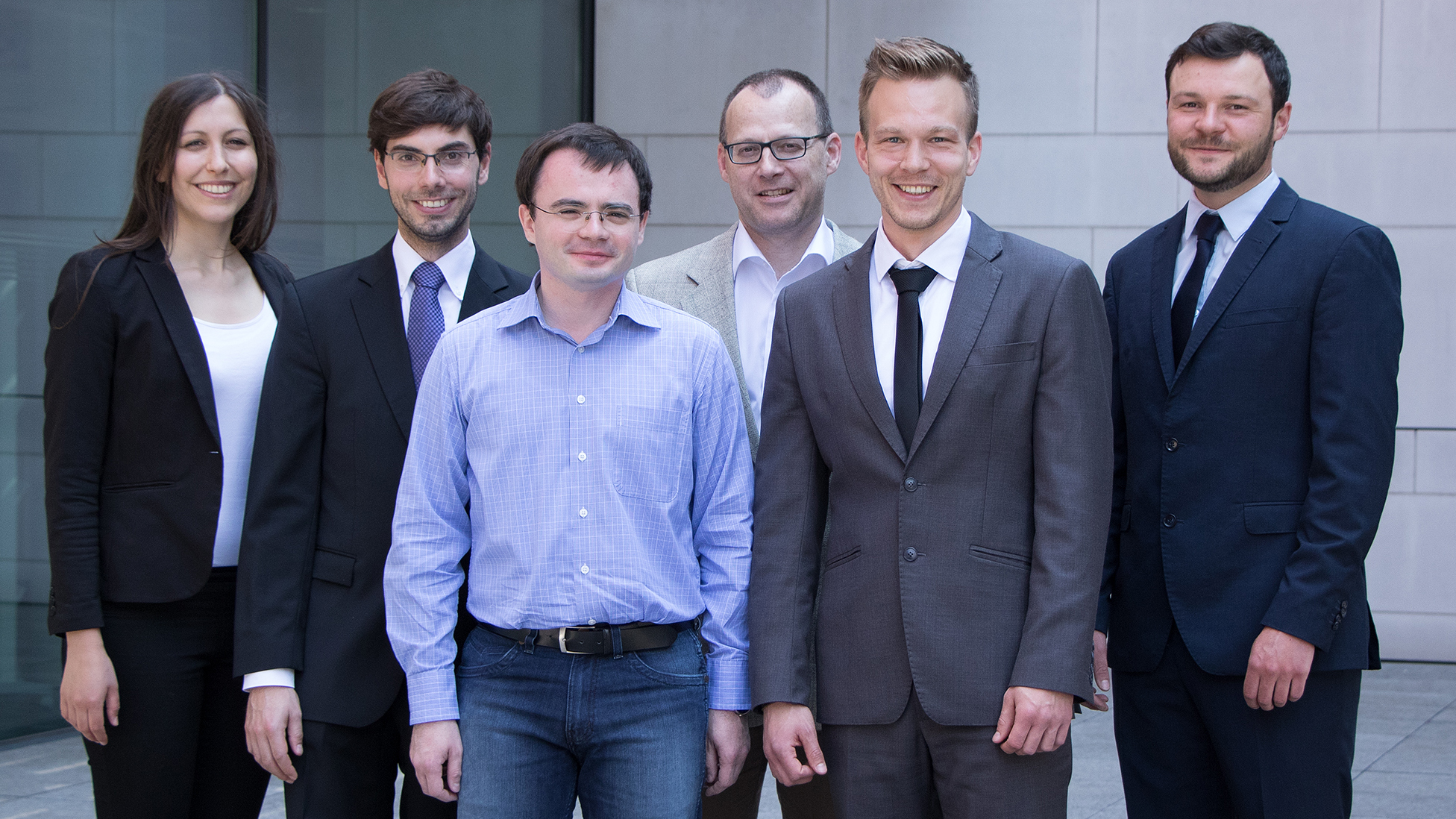Interview with Dr. Friedrich Dornbusch
“Knowledge exchange is one of the most important elements of successful innovation processes”

Dr. Friedrich Dornbusch serves as head of the Innovation Policy and Transfer Design Unit, created in 2017. In our interview, Dr. Dornbusch gave us some insights into his unit's main areas of focus, talked about its current research projects – and explained what scientific research and Thai boxing have in common.
Dr. Dornbusch, you have served as head of the “Innovation Policy and Transfer Design” Unit since its creation in 2017. What key areas does your unit's work focus on, and how does this contribute to the Fraunhofer IMW's knowledge economy profile?
At the core of our work is the analysis of transfer processes and structures in order to contribute to their improvement. A functioning knowledge exchange process that crosses the borders between organizations is one of the most important elements of successful innovation processes. Businesses, for example, depend on collaborations with public research institutions – like the Fraunhofer-Gesellschaft. We see it as our mission to develop ideas for and approaches to how this access can be made easier in a systematic way. We investigate questions like: How can the transfer of knowledge and technologies be organized? How is knowledge transferred from one stakeholder to another? What instruments and organizational structures are suitable for promoting this transfer? We often put ourselves in the shoes of the policy-makers, and evaluate and support innovation and science policy based funding instruments. We contribute the findings from our research to the further development of innovation and science policies. The areas we work in therefore meet our unit's strategic profile. Our unit also includes many colleagues who have been at the institute for a long time. The unit benefits from their knowledge and their successful projects. In addition, we also cooperate with other units in many projects, for instance with Annamaria Riemer, Lutz Maicher and Tobias Dauth and their respective teams.
In your research so far, you have intensively addressed the collaborations between researchers and businesses and their quantitative measurability. What are the biggest potentials such collaborations harbor – and what are the biggest challenges?
Innovations generated in a research environment are often not as market-focused – however, after they have proved themselves, they tend to be more radical and influential than those produced by the in-house R&D departments of businesses. Especially medium-sized enterprises can benefit from the science community as an inspirational source. Two aspects are decisive for successful collaborations. Matching expertise and qualifications are an essential but not the only essential precondition. The stakeholders involved must also speak a common language – and they must get on on a personal level.
What scientific methodologies do you prefer to use in your research?
We take our pick from the spectrum of classic qualitative and quantitative methods yet also attempt to develop these further. In future, IT-supported systems will help us to handle and structure big data volumes. Ultimately, what matters is asking the right questions and answering them with innovative methods.
On Research Day in January, the poster for your unit's research project “Fraunhofer transfer management system: Promoting research and development in Germany's Mittelstand (InnoTransMitt)” came first place in the in-house poll. What are the next steps in this project, and what other research projects will you and your unit be mainly involved in this year?
We became involved with “InnoTransMitt” at the empirical field stage and carried out a series of interviews with staff from the Fraunhofer-Gesellschaft headquarters in Munich. Next, we will contact the institutes and businesses and ask them what they expect from a transfer management system. In the “IntTransNet” project, we are evaluating and optimizing the Federal Ministry of Education and Research (BMBF) 2+2 programs, and in “IFI-Leben”, we are developing formats that can already assess the commercial viability of innovations at an early development stage.
In your leisure time, you do Thai boxing. Do you pursue this sport because it is such a contrast to your work as a scientist? Do you see parallels between sport and applied research, and if so, which ones?
The sport keeps me fit; however, I can no longer devote the time to it that I would need to in order to get to a level where I could compete. Thai boxing may seem like a very physical sport, but in fact, it's all about your mentality and what's going on in your head. You have to have the right attitude; self-confidence, discipline and ambition are decisive – and you also learn what it feels like to lose from time to time.